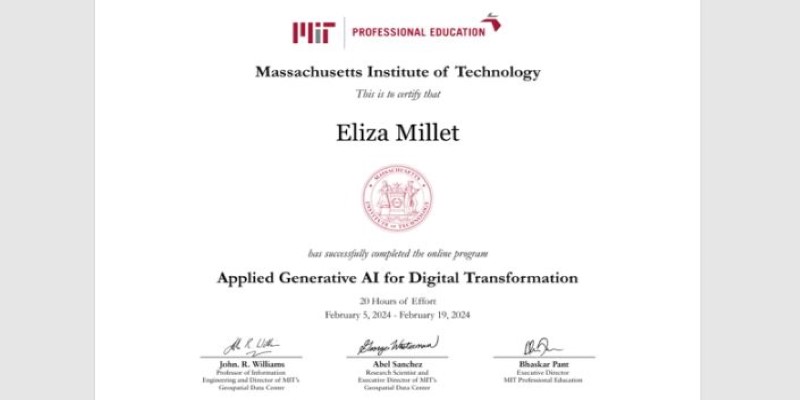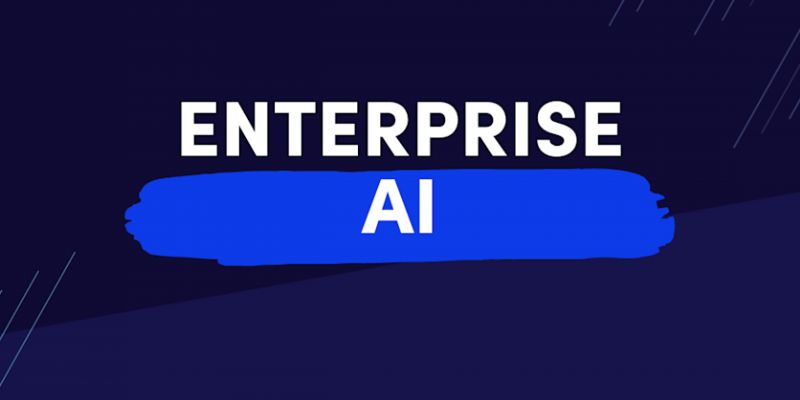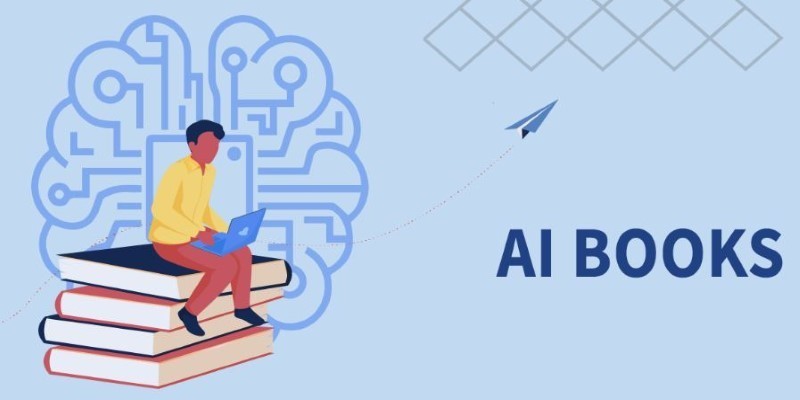The rapid expansion of Generative AI has made one thing very clear—those who understand it will shape the future. Whether you’re aiming to apply AI tools at work, build applications, or simply keep up with what’s next, certification programs have become a reliable entry point. And if you’re wondering where to begin, some of the world’s most respected universities are already a step ahead. Here are nine of them offering GenAI certifications that stand out for their practical focus, well-structured content, and the credibility of the institutions behind them.
Top 9 Universities Offering GenAI Certification
Stanford University
Stanford’s short course on Generative AI is designed with practical application in mind. Taught by faculty members who are both researchers and practitioners, the program focuses on how generative models work and how to use them in real-world projects. It touches on topics like large language models, diffusion models, and ethical concerns—but without getting lost in abstract theory. Think of it more like a hands-on lab than a lecture hall. It's especially well-suited for managers, product leads, and developers who want a solid working understanding of GenAI’s mechanics and potential use cases.
MIT

MIT's reputation in AI research needs no introduction, and its GenAI certification doesn't disappoint. Offered through their Professional Education platform, this course covers technical foundations while also explaining how GenAI connects with industries like design, software development, and media. The structure includes interactive projects and live virtual instruction. Participants leave with a clear framework of how to approach generative tools, whether they're building with them or managing teams that do. It's detailed, yes, but designed for learners who might not have a computer science background.
University of Oxford
Oxford approaches GenAI from a slightly different angle. Rather than just teaching how the technology works, this online certification focuses on its implications for leadership, policy, and innovation. Developed in partnership with Oxford’s Saïd Business School, the course is divided into modules that include risk management, governance, and use-case mapping. It’s especially appealing to decision-makers who want to understand the broader picture—how generative models could change hiring, communication, or even regulation in their industry.
University of California, Berkeley
Berkeley’s certificate highlights application-based learning. Students work through a series of structured case studies—from AI-generated content in journalism to synthetic data generation in healthcare. While the program doesn’t skip the technical details, it really shines when explaining how those details show up in day-to-day work. If you’re curious about the ethical gray zones of generative tools—deepfakes, automated decision-making, intellectual property—Berkeley gives you a balanced perspective rooted in current research.
Carnegie Mellon University
Known for its strength in computer science, CMU takes a deep dive into GenAI's core algorithms. This program is ideal for those with a bit of programming knowledge who want to explore how text and image models are trained, fine-tuned, and deployed. The structure leans on building simple projects, allowing participants to experiment with prompts, training datasets, and model output in real time. It's more technical than some others on the list, but the clear structure makes it very doable, even for those not working in AI full-time.
Cornell University
Cornell’s GenAI certification takes a forward-looking approach. Instead of focusing just on models and tools, it examines how work itself is changing. From automated writing assistants to AI-enhanced design software, the course shows how generative systems are already embedded in daily workflows—and what this means for career planning, hiring, and job design. A solid option for HR professionals, team leads, and consultants who want to help others adjust to AI-driven work environments.
Harvard University
This course doesn't require coding or technical fluency. Instead, it offers business leaders a structured way to evaluate and adopt generative technologies across different departments. It includes sections on productivity, customer service, marketing automation, and strategic decision-making. The tone is practical, not speculative. Harvard leans heavily on examples from the finance, health, and education sectors, giving participants a grounded sense of what’s already happening and how they can apply it back at work.
University of Toronto

Toronto’s certificate is all about creation. While many programs focus on theory or management, this one is aimed at those who want to build. From writing better prompts to creating applications using GenAI APIs, students move from foundation to execution over several modules. The course doesn’t assume deep knowledge of AI, but it does expect you to roll up your sleeves and get into the code. If you’re a product designer, developer, or aspiring AI engineer, this is the kind of course that won’t stay on the shelf—you’ll use what you learn right away.
National University of Singapore
Offered through its School of Continuing and Lifelong Education, NUS frames GenAI as a tool for innovation in sectors like logistics, public policy, and digital communication. This program stands out for its regional relevance, using examples from Asia-Pacific industries and challenges. It's taught with a practical mindset, encouraging learners to think about problems first and then explore how generative systems can offer new kinds of solutions. There's also a strong focus on how different cultures and regulatory systems interact with emerging technologies.
Conclusion
Generative AI is no longer just a topic for researchers or tech insiders. It’s part of how products are built, how ideas are tested, and how work gets done. Whether you're leading a team, writing code, managing operations, or simply planning your next move, understanding how GenAI fits into the picture isn’t optional—it’s part of staying relevant. These nine universities offer certifications that do more than explain the basics. They give you the language, the tools, and the confidence to work with this technology in a way that makes sense for your role. If you're ready to start, there's no shortage of good choices. Just pick the one that speaks to where you want to go next.











